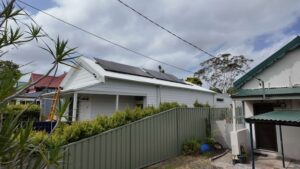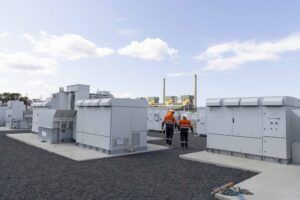The Greens have asked the Australian Competition and Consumer Commission to investigate the powers of the large “gentailers” that dominate the Australian electricity market and – much to their surprise – appear to have gotten a bite.
ACCC chairman Rod Sims says his team will look into the claims filed by Greens Senator Christine Milne, which focus on the power of the gentailers (the energy utilities who act as both generators and retailers) to dominate the deployment of large-scale renewable energy, and the potential for generators to game prices on the National Electricity Market.
Milne cited two developments in her letter to Sims: the inability of developers to gain power purchase agreements, particularly in the Solar Flagships program; and recent comments by Macquarie Generation that it would seek to close down capacity to boost market prices on the NEM.
The letter included a transcript from a Senate Estimates hearing in February, reported on this website, that included recognition from the head of the Department of Energy Drew Clarke that the dominance of the gentailers was an issue that was being monitored by DRET.
The flagships situation was an unusual event, because two of the big gentailers were involved in competing bids and were never likely to grant a PPA to a rival. The one remaining utility wasn’t impressed with either the idea or the economics of the project, as Origin Energy CEO Grant King conceded in this interview with RenewEconomy.
However, the power of the gentailers has clearly been an issue with the renewable energy industry – to the point where three of the biggest wind and solar developers, Pacific Hydro, Infigen Energy, and CBD Energy, have sought to create their own energy retail operations so they can client for their own green energy developments. As Pacific Hydro said in this story we ran, the Australian energy market was dominated by a few very large vertically integrated entities, “who are not only our potential customers but also competing for funding under the solar flagships program.”
The Solar Oasis consortium proposing to build a 40MW solar thermal plant in Whyalla using pioneering technology is also using its own green energy retailing operations to underpin the project.
Milne also cited comments by the CEO of NSW government-owned Macquarie Generation, Russell Skelton, that the company would reduce output to increase the price of power on the NEM. “We have done it in the past to respond to varying market circumstances,” Skelton told the AFR.
Milne said she wanted to know from the ACCC if “this sort of manipulation is legal,” and if not, what the ACCC was doing about it.
Milne said the power of the gentailers was similar to the impact of the Coles/Woolworthe duopoly in the grocery market. “Three big companies having effective control over the vast bulk of both power generation and retail in the country can only be a bad thing for both consumers and clean energy producers,” she said in a statement.
“An efficient, 100 per cent renewable energy grid will keep power bills down, create jobs and protect the climate, but it won’t necessarily serve the interests of the existing big players in the market. That’s why I’ve asked the ACCC to look into their market power.
“Just like the Coles and Woolworths duopoly, I am very concerned that big power companies can potentially abuse their power to not only block the roll out of renewable energy and energy efficiency, but also drive up power prices to increase their own profit margins.
“The biggest barriers to rolling out cheaper clean energy are the way the current energy grid is managed, the electricity market rules, and the way that the big gentailers are manipulating the system to benefit old polluting energy at the cost of both clean, renewable alternatives and of cheaper power prices for consumers.”








